Despite my being a conscious person while wandering through the streets, it was as if a hazy, sleep-deprived version of myself had actually lived it. I could only recall the confusion I felt while being there. I wondered how a place so different from my home could be my father’s home. As soon as I landed back in the comfort of familiarity in the United States, part of me began discarding the discomfort of the culture that I visited.
Instead of sharing how unsure I was about what had really happened to me abroad, I just tried to talk – say anything that drifted slowly and carefully through my mind and landed gently on my tongue. My words described the curious vendors on the street, the strange fruits I ate for breakfast. I was afraid to say the wrong thing or reveal too much of my flimsy knowledge. There were so many things I wanted to say, but I did not know how.
I distinctly remembered the burning on my lips from the chilies and the intense heat on my skin from the sun’s rays. I remembered how the hot kisses on my forehead from my family awaiting our arrival made me feel warm from my spine to fingertips. I remembered the warmth of most everything with poignancy. It was as if the heat of the entire city of Mumbai was the first thing to ever make me sweat.
When I tried to recount this, I would inevitably just feel cold. I wanted my observations to be unique, authentic. In order to piece together a real history of what India means to me, I went flew back alone and began asking the questions that had been swirling around and consuming me in every previous trip. After spending hours and days in the Pinto Hospital, I can begin to truly share an element of India that relates to me. This is the story that I have always wanted to tell. It is a tradition that my grandparents began and my aunt continues today. It is a place that both fascinates and defines me.
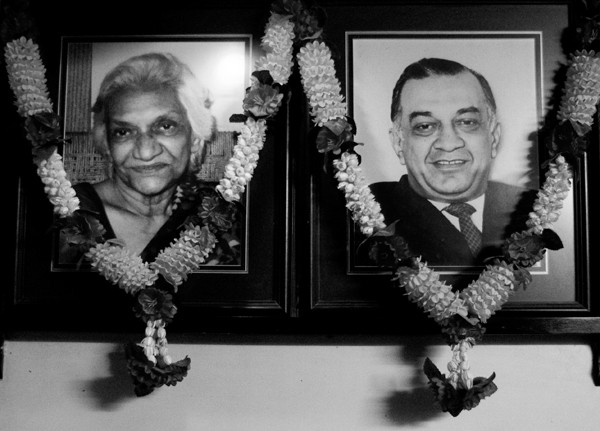
My Grandparents. The images of the late Drs. Denise and Charles Pinto hang in the entrance way to the hospital. They opened the hospital in 1947, two years before my father was born.
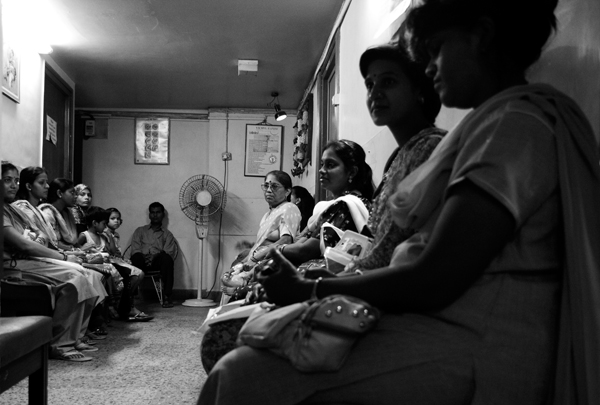
The Waiting Room. Finding it too difficult to make appointments for the many patients she sees, Dr. Sunita Pinto created daily office hours for people to have check-ups. Most women come alone to see the doctor, but some have interested husbands or concerned mothers who tag along.
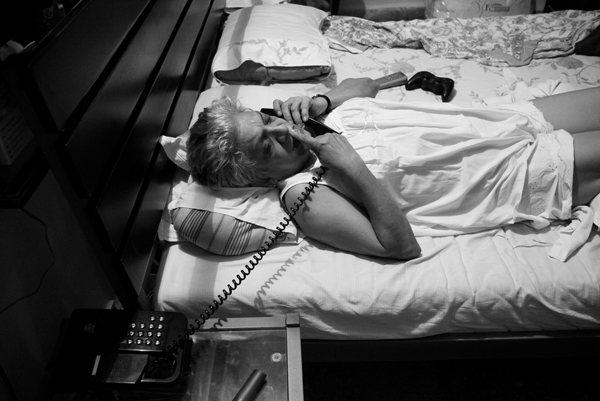
Dr. Pinto has a direct line from her apartment on the fifth floor to the hospital three stories below. She makes herself constantly available to her staff by telephone and when traveling to parts of her neighborhood that don't have service, she calls to let them know where she will be. If need be, someone would physically come reach her in case of a medical emergency.
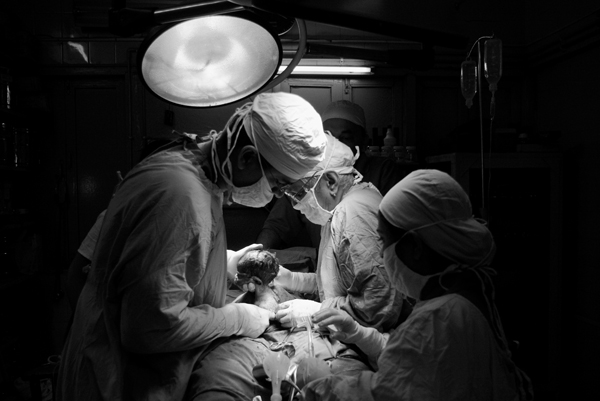
C-Section. Although Dr. Pinto does most deliveries alone, when a more complicated procedure is necessary she requires the help of a team of other doctors. This c-section was especially difficult because the mother had a history of cysts on her uterus. The doctors were careful to not cause a tear to the scarred walls during the operation.
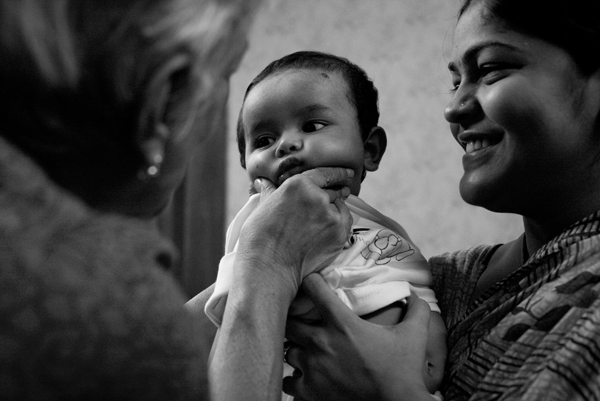
Every month, a few perfectly healthy women will wait during office hours to pop in with their toddlers to thank Dr. Pinto for her care during their pregnancy. When she walks down the streets of her neighborhood, it is inevitable that she runs in to a former patient with grown children who greet her with a smile. Many of the children in the area have the pet names “Pinto and Pinti” for their having been born in the Pinto Hospital.
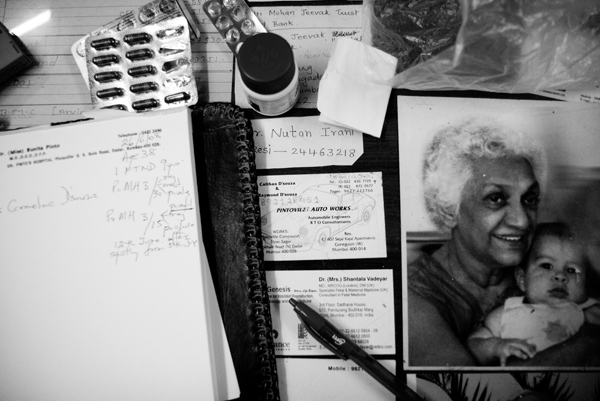
In place of having file cabinets filled with patient records, Dr. Pinto writes up a summary of each patient's pregnancy on a note pad and insists that the women bring the paper back - clean and unwrinkled - to their next appointment. Her desk is decorated with an image of her mother and one of her many grandchildren and a scattering of various free medicine samples.
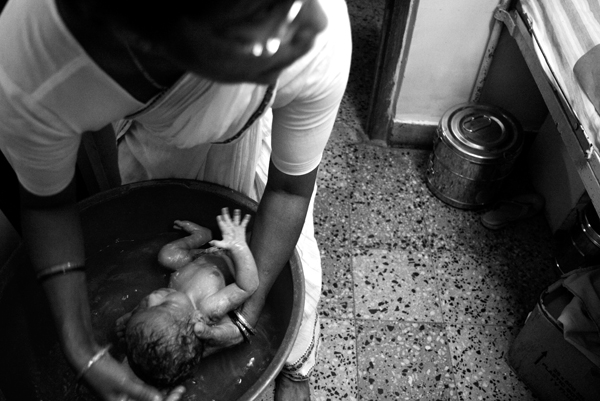
Ayahs have the responsibility of cleaning the hospital, cooking meals for the mothers, and tending to newborn babies. Although primary education up to college is free for all Indian women, many of the ayahs are uneducated and have only been taught to cook and clean through their upbringing.

The small hospital requires the attention of all staff to function efficiently. Here, an ayah and three nurses await direction from the doctors performing a hysterectomy.
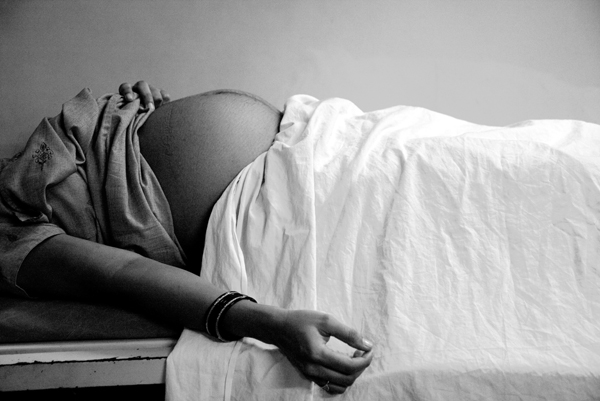
Women are eager to be reassured that their pregnancy is progressing well and to hear a normal heartbeat of their unborn child. Although Dr. Pinto answers any questions the patients may have, it is illegal in India to release the sex of the child to the parents before birth in order to prevent abortions on female fetuses.
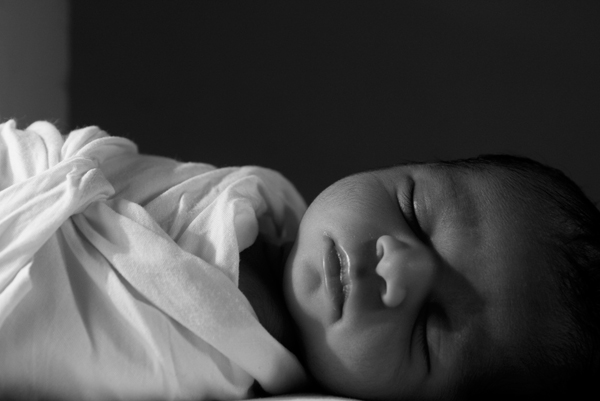
Once cleaned, weighed and clothed, newborn babies drift to sleep as their mothers are cared for post-operation.
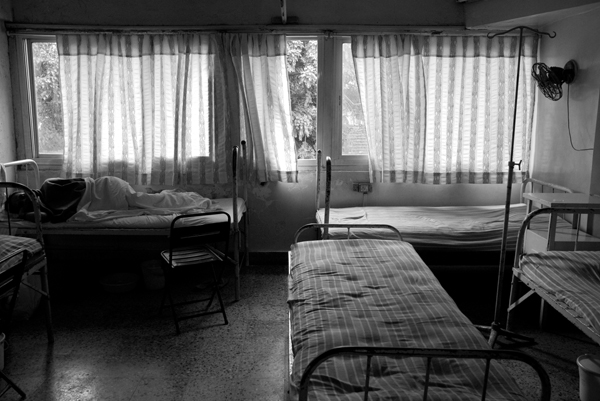


3 comments:
BADASS!!!!
can i be your assistant next time you go to india?
Great job
param
Thank you, darling, for all the many flattering and some not so flattering pictures! Please save them for me for posterity. Tia.
(PS: I have some technical edits for you, please call me when you are home.)
Post a Comment